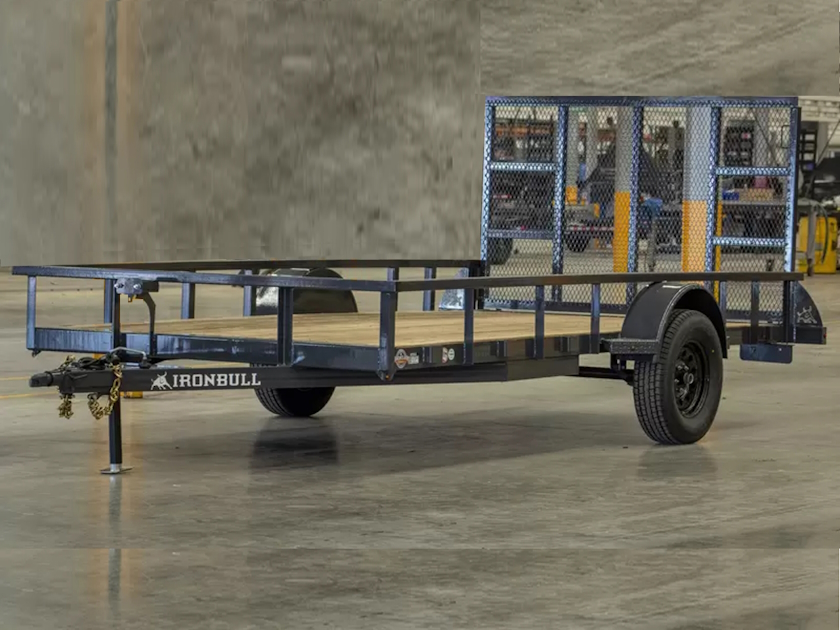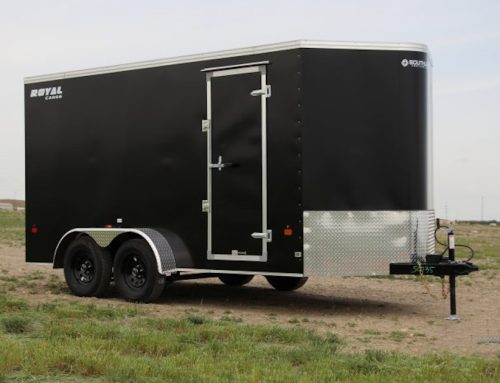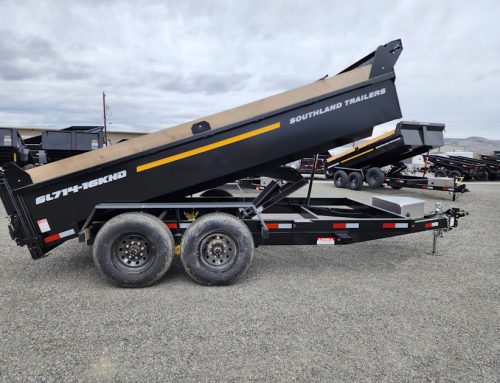At Trailer Station USA, we believe educated customers make the best decisions when looking to purchase a utility trailer. A utility trailer is an incredibly versatile piece of equipment that can be used for hauling everything from landscaping materials to household goods during a move. With the right trailer, you can tackle projects and transport cargo that would not be possible with just a vehicle. However, with so many distinct types, sizes, and features available, selecting the ideal utility trailer for your needs can be a daunting task. In this guide, we will cover the key factors to consider and provide tips to help you choose the best utility trailer.
Determine Your Hauling Needs
Before diving into the specifics of trailers, it is essential to assess your hauling requirements. Ask yourself what you will primarily be using the trailer for – moving furniture, transporting equipment, hauling construction materials, or something else entirely. This will help you narrow down the appropriate trailer type and capacity.
According to a 2019 survey by U.S. Trailer Ownership Program, the most common uses for utility trailers are:
- Moving household goods (39%)
- Hauling landscaping materials (22%)
- Transporting equipment (17%)
- General cargo hauling (12%)
- Construction/remodeling work (10%)
Once you have identified your hauling needs, you can start exploring different trailer types. The most common options include:
- Open Utility Trailers: These are the most versatile and affordable option, featuring an open bed design ideal for hauling various cargo types.
- Enclosed Cargo Trailers: With a fully enclosed body and lockable doors, these trailers offer enhanced security and protection from the elements, making them suitable for transporting valuable or weather-sensitive items.
- Dump Trailers: As the name suggests, these trailers can be tilted to dump their load, making them perfect for hauling and unloading loose materials like gravel, soil, or demolition debris.
- Equipment Trailers: Designed to transport heavy machinery, equipment trailers typically have a low-profile bed and reinforced construction to manage significant weight.
Trailer Size and Capacity
Trailer size and capacity are crucial considerations, as they determine how much you can haul and what types of cargo you can transport. Trailer lengths typically range from four feet to eight feet, with wider options available for larger loads.
When selecting a trailer size, consider the following factors:
- The weight and dimensions of the items you will be hauling
- The towing capacity of your vehicle
- Local regulations and restrictions on trailer size
According to the U.S. Department of Transportation, the maximum allowable trailer width on national highways is 8.5 feet, and the maximum length can vary from twenty-eight feet to fifty-three feet, depending on the state.
Gross Vehicle Weight Rating (GVWR)
The Gross Vehicle Weight Rating (GVWR) is the maximum weight a trailer can safely carry, including the cargo and the trailer itself. It is essential to choose a trailer with a GVWR that exceeds the combined weight of your loaded cargo and the trailer’s empty weight. A study by the Recreational Vehicle Industry Association found that overloading is a common issue, with 25% of trailers exceeding their GVWR on the road.
Trailer Features and Accessories
Consider the features and accessories that can enhance the functionality and convenience of your utility trailer. Some popular options include:
- Ramp gates or dual rear doors for easy loading and unloading
- Tie-down points or D-rings for securing cargo
- Spare tire and mount
- Lighting kits for improved visibility
- Brakes (required by law for trailers over a certain weight)
- Toolboxes or storage compartments
- According to a survey by the North American Trailer Dealers Association, the most sought-after trailer features are ramp gates (67%), tie-down points (56%), and spare tire mounts (49%).
Brand and Quality
While budget is certainly a factor, it is also important to consider the brand reputation and overall quality of the trailer you are purchasing. Well-known brands tend to offer better construction, durability, and resale value. A study by Consumer Reports found that trailer owners reported significantly fewer problems with mainstream brands like Southland Trailers, Iron Bull Trailers, and Big Tex Trailers compared to lesser-known or budget brands.
By taking the time to assess your hauling needs, understand trailer types and capacities, and prioritize quality and features, you will be well-equipped to choose the best utility trailer for your specific requirements. Remember, a reliable trailer can be a worthy investment, ensuring safe and efficient transportation of your cargo for years to come. At Trailer Station USA, we can match your needs with the best utility trailer at the best price for sale near you.



